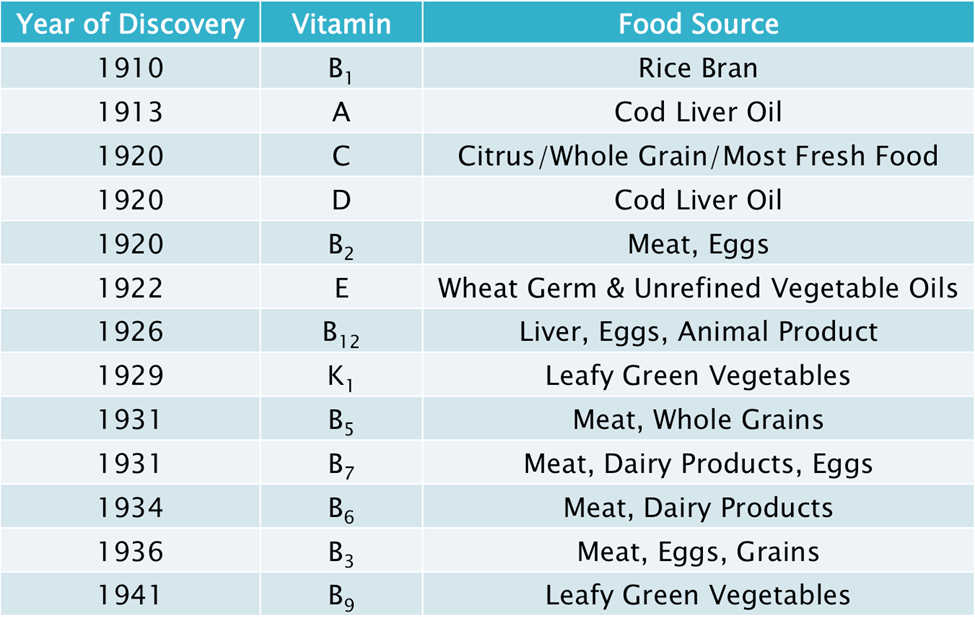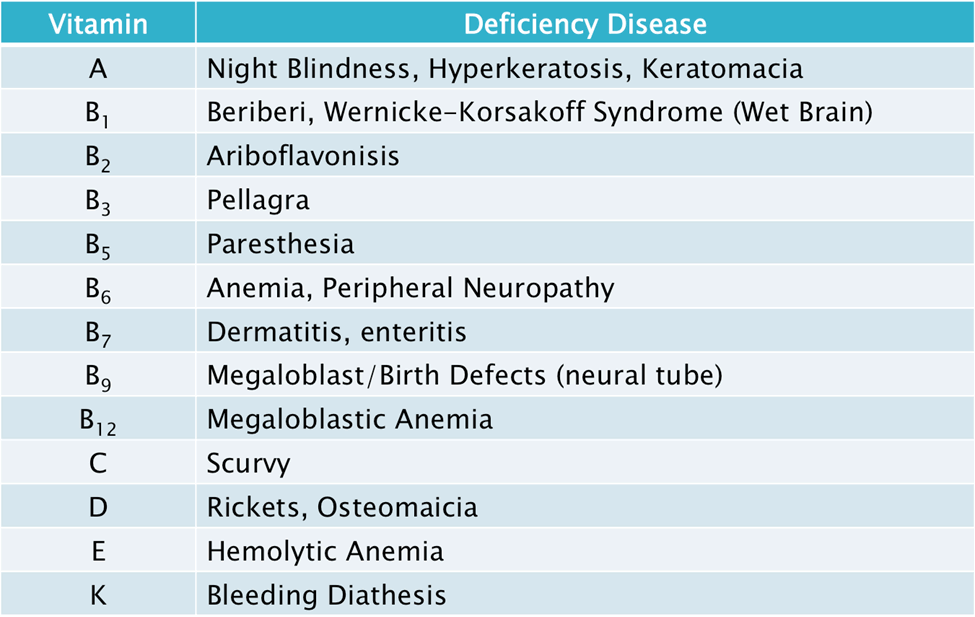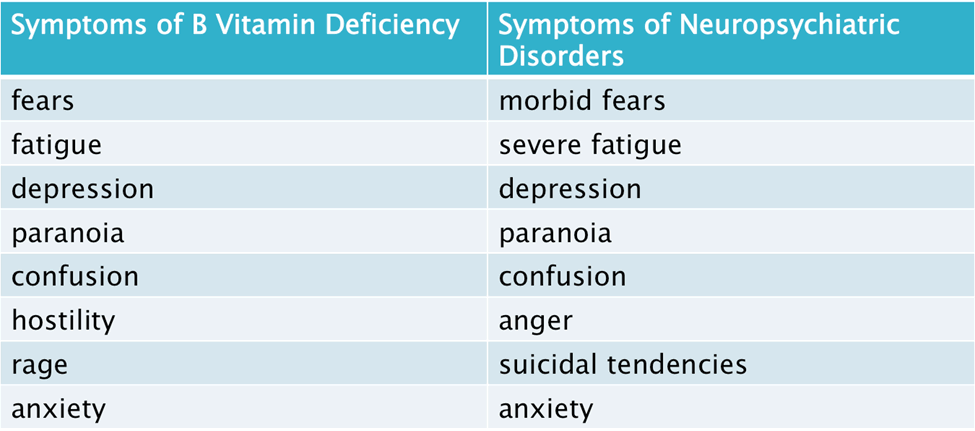Vitamins are essential (in most cases) organic compounds required by biological organisms. They are classified by their biological activity rather than their chemical compounds. For example, Vitamin A can be retinal, retinol or carotenoids. Vitamins function as hormones to regulate mineral metabolism; regulate cell differentiation and tissue growth; work as antioxidants; and are metabolic catalysts (as coenzymes).
The following table illustrates the food source from which various whole, natural vitamins emanate:

Perhaps just as important as the source of whole, natural vitamins are diseases and syndromes that occur from deficiencies of various vitamins:

There are many more vitamins not recognized by the FDA as being required by humans because they cannot be artificially synthesized.
Deficiencies of B vitamins can also appear as conditions generally considered mental health issues and for which psychotropic medication is often prescribed. Studies have shown many of the following issues can be corrected with whole food nutrition:

